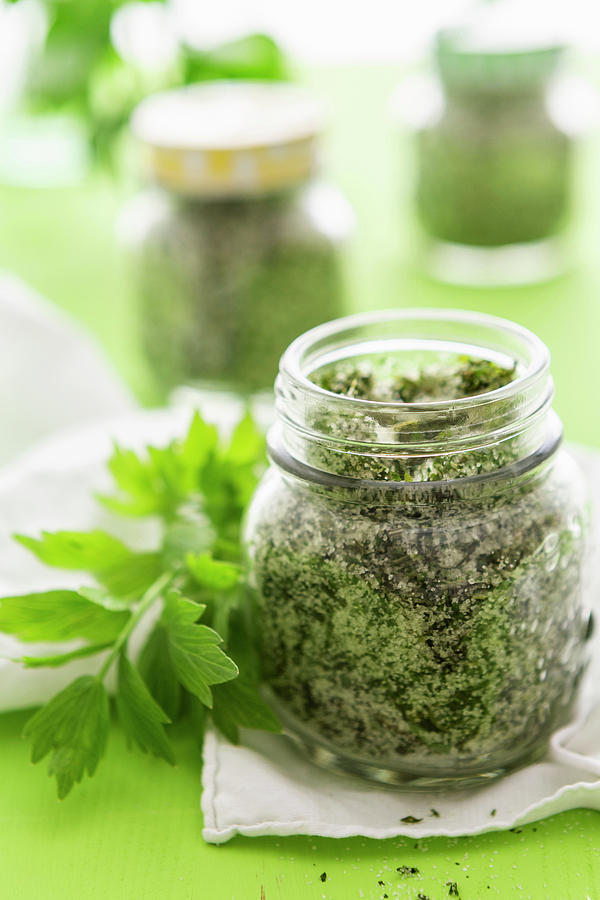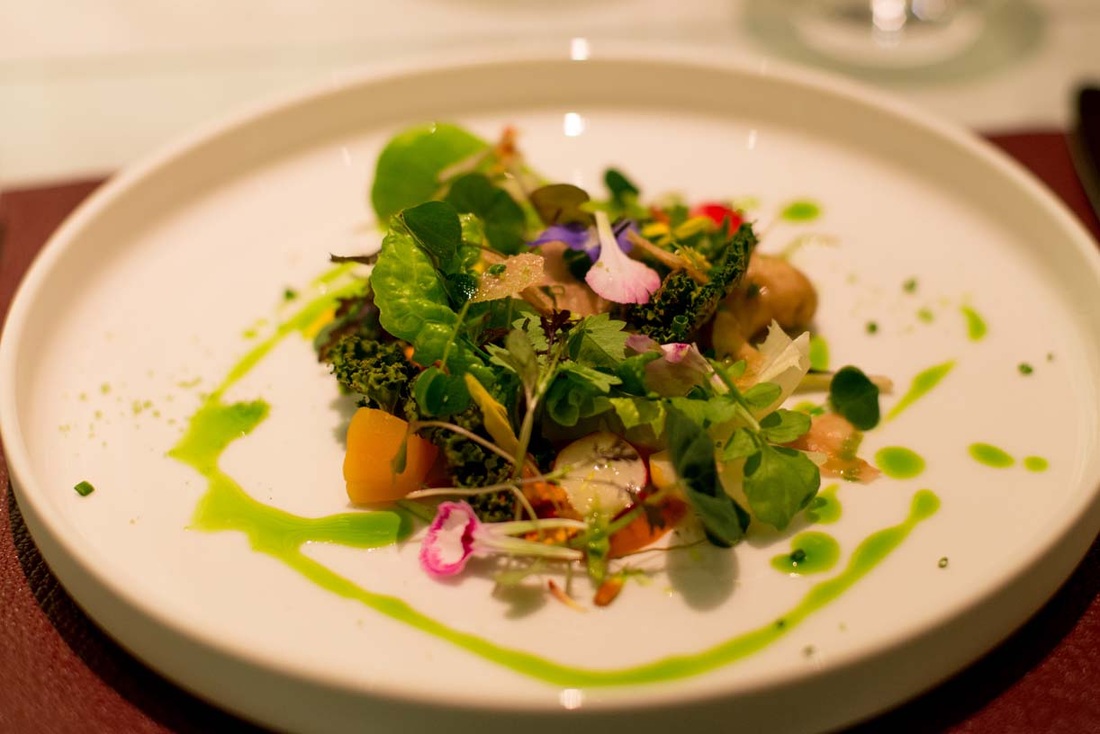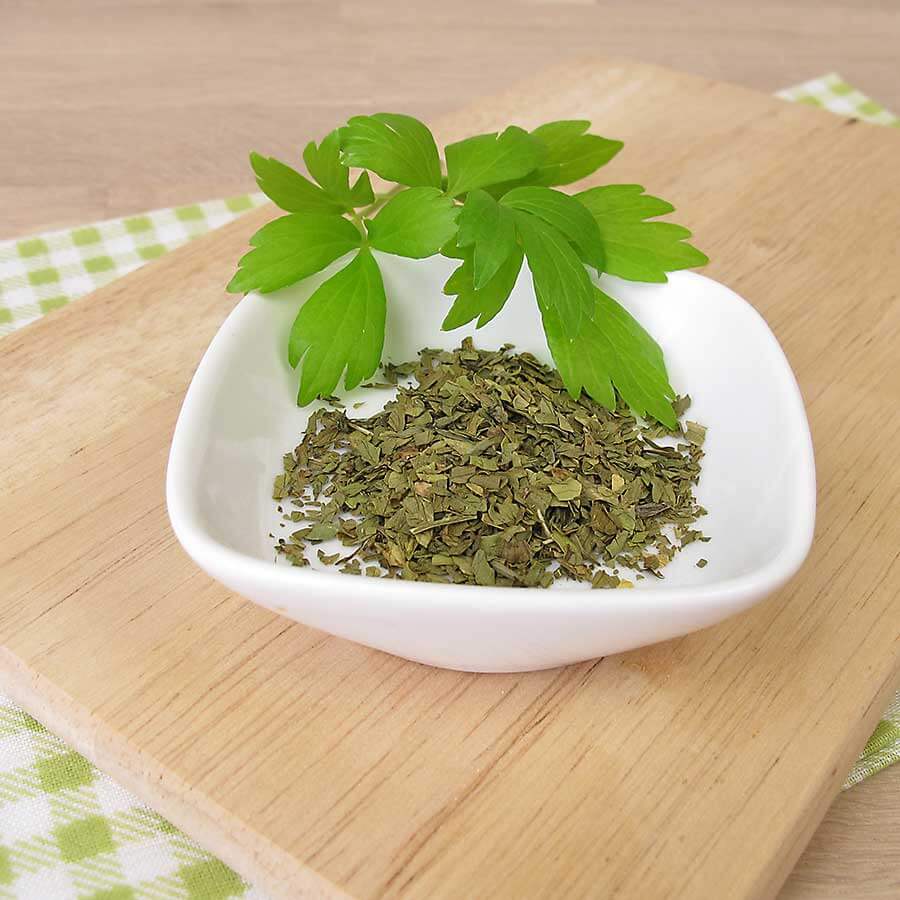lovage salt Herbs, Salt, Garden
Lovage Salt The Grazer
Spread the lovage salt on a baking paper and let it dry for a couple of days at room temperature, possibly in a sunny place. When the salt has completely dried, blend it once again in order to obtain a finer and more uniform texture. Lovage salt has an incredibly long shelf life, so don't spare yourself with quantities when making it and.

Lovage Salt Photograph by Sandra Krimshandltauscher Fine Art America
Lovage has a natural salt taste and during the war in Europe the leaves were dried and used as a salt substitute. Lovage blends well with the lemon herbs such as lemon basil and lemon thyme. Lovage is good with chicken, potatoes, potato salad, eggs, fish, tuna, creamed soups, and savory pies. The foliage can be cut into strips and cooked with.
Lovage Salt The Grazer
Pile the lovage, garlic and mustard in a pint jar. Pour the olive oil, white wine vinegar and water in. Season gently with salt and pepper. Place a top on the jar and twist to seal. Shake vigorously. Enjoy. This should be shaken well before using each time. Bright and bold, this Lovage Garlic Vinaigrette recipe is perfect for drizzling on.

salt and lemon juice Lavender and Lovage
Lovage Salt. Take that dried lovage and make some lovage salt to season cooked dishes. Use 1/4 Cup Coarse Salt (Kosher or Sea Salt is especially nice) to 2 Tablespoons crumbled, dried lovage leaves. Mix together and store in an airtight jar. For a finer mixture, pulse in a blender or food processor. Use as a substitute for celery salt.
Lovage Salt The Grazer
Drain when cooked. When the courgettes are cooked add the lemon zest and 20g chopped lovage, stir and warm through. Lightly toast a handful of sunflower seeds in a small frying pan. Mix the cooked pasta with the courgette mixture and top with the sunflower seeds. Season with salt and pepper to taste. Serve immediately with a salad.
Lovage Salt The Grazer
Lovage is thought to originally come from Central Asia. As a member of the parsley family, is related to parsley, aniseand dill. The perennial plant grows to up to two meters tall. Its hollow, furrowed stems bear yellow flowers and rich green, bipinnate leaves. The name "lovage" has nothing to do with "love.".

A GREEN BREAKFAST. LOVING LOVAGE. Herb recipes, Ethnic recipes, Food
Bring the mixture to a boil, and stir until the salt is dissolved. Remove from the heat and allow the brine to cool. Add a sliced shallot, some pink peppercorns, or celery seeds. Fill a canning jar with the lovage stems, leaving an inch of room at the top. Fill the jar with brine mixture, covering the stalks.

Review 1883 Syrups Drinkhacker
This is not a shy herb by any stretch. In addition to the predominant celery bite, lovage also offers a bit of a citrusy zing. How to Use Lovage . Lovage gets along beautifully with a large number of foods. The leaves can be used in salads, soups, and anything containing pork, poultry, and strongly flavored fish. But a word of caution: Lovage.

Blog Posts thecriticalcouple
Herbal salts add a zing to your dishes. Less salt and more taste. Sounds like a win win. Lovage or Leave It Frankly, we would rather love it. Why? Oh the taste is so darn good. Lovage is an old time herb which is a cross between parsley and celery. It creates a zesty flavor to food. At the farmers markets, we hear this over and over.

องุ่น เพล ซอลนิค Salt Nic Play Grape salt Guuvape
Heat the oven to 200C/400F/gas mark 6. Put the oil in a frying pan over medium-low heat, add the onion and bay, and sauté gently until soft, about 10 minutes. Add the lovage stems, fry for a.
Lovage Salt The Grazer
Lovage Salt. A well rounded seasoning for roasted meats and vegetables, soups, salads, and just about anywhere you might use celery salt. Combine finely chopped leaves with sea salt in equal parts. Let the mixture sit out in the sun to dry over a few days. Get the recipe from The Grazer. 10. Lovage Infused Vinegar

Lovage is a perennial plant that is a member of the parsley family.
Lovage prefers rich, loamy soil, so dig in plenty of compost to improve the soil before planting. A nice sunny spot is best, but lovage will also tolerate partial shade. Plant two feet apart, with two feet between rows, and water the plants in well. Return to water the plants every day until they are well established.

Homemade Herb Salt Recipe Rootsy Network
Lovage (/ ˈ l ʌ v ɪ dʒ /), Levisticum officinale, is a tall perennial plant, the sole species in the genus Levisticum in the family Apiaceae, subfamily Apioideae. [1] [2] It has been long cultivated in Europe, the leaves used as a herb, the roots as a vegetable, and the seeds as a spice, especially in southern European cuisine.

Movie Salt HD Wallpaper
Lovage (Levisticum officinale Koch) belongs to the plant family Apiaceae. Lovage originally comes from Iran and Afghanistan but is also grown in temperate regions worldwide. One of the major health claims about lovage is reducing inflammation, especially the urinary tract. Lovage may have diuretic and antimicrobial properties.

Buy Lovage Seeds 100 Organic Top Quality Grow Food Guide
Pick the leaves from the stems and measure the required amount. Place about half of the leaves in a food processor; they will probably fill the processor. Process them shortly to make space for the remaining ingredients. Add the remaining leaves, nuts, chopped cheese, oil, lemon juice, salt, and pepper (1).
Lovage, Levisticum officinalis, Black Lovage, Smyrnium Olusatrum
De-stem the lovage and discard (or compost) the stems. In the bowl of a food processor, combine 1 part lovage leaves with 3 parts salt. Process until lovage and salt are thoroughly blended. Transfer lovage salt to a baking tray with a rim (such as a jelly roll pan) lined with parchment, wax paper or a silicone baking mat. Spread salt in a thin.